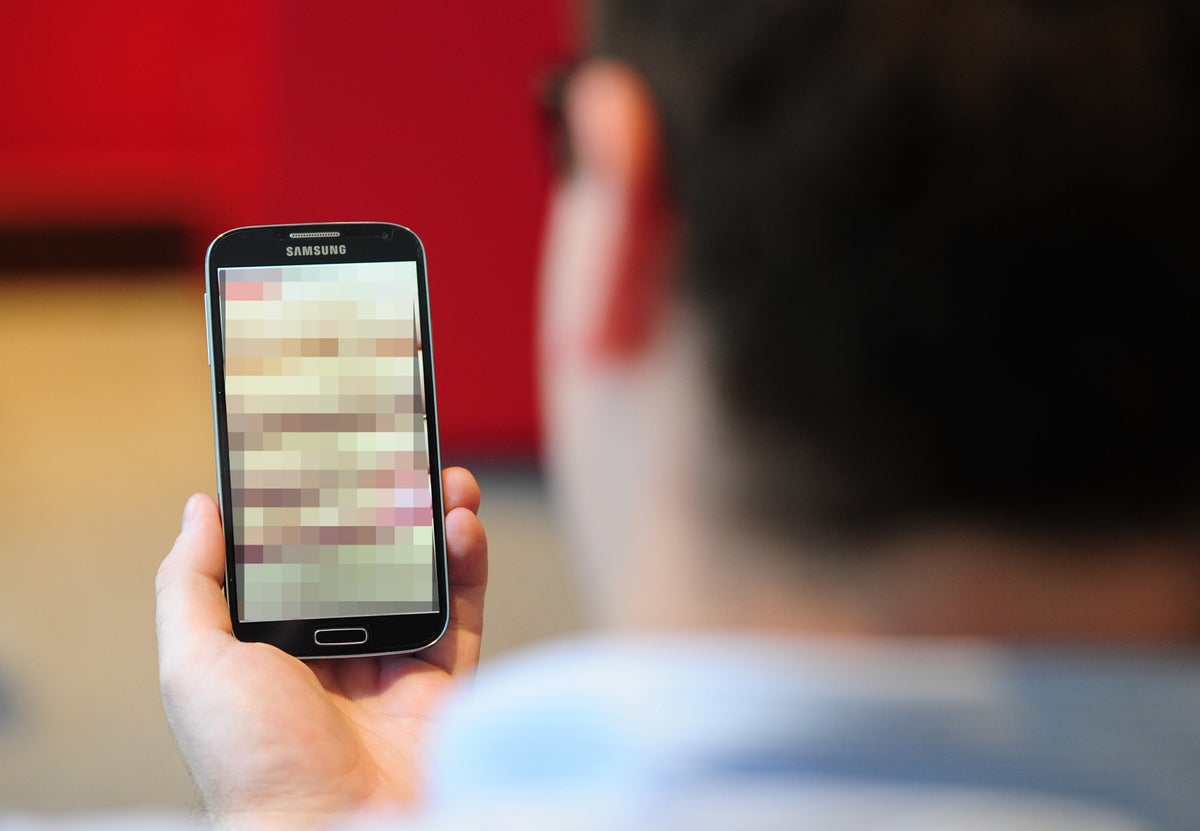
The number of people charged for revenge porn has been branded “woefully low” as new data shows just 4 per cent of reports lead to court action as cases surge.
Data obtained through Freedom of Information laws show 13,860 explicit image crimes were recorded across 24 police forces from 1 January 2019 to 31 July last year.
But the figures, released by domestic abuse charity Refuge, reveal that just 534 cases resulted in charges.
Cases are also on the rise, with 26 per cent more offences reported in 2020 than in 2019 and a 40 per cent jump from 2020 to 2021. In the first half of last year alone, more offences were reported than in the whole of 2020.
Since 2019, almost a quarter of cases led to no further action because of “evidential difficulties”, while victims withdrew support in up to 35 per cent of cases when a suspect was identified.
Refuge warned that this demonstrates the need for revenge porn victims to be given the right to automatic anonymity as other sexual abuse victims do. That measure has been proposed but has not been made law.
In 6 per cent of cases, the victim chose not to or was unable to support action to identify the offender, while 33 per cent of cases the recorded outcome was not specified.
Ruth Davison, chief executive of Refuge, said the charging rates were “woefully low” and warned that while the “public awareness” of intimate image abuse had increased, police officers remain ill-informed about the crime.
She added: “By and large police officers don’t seem to be aware of the change to the law and are still turning women away because their abuser hasn’t shared the image in question.”
Intimate image abuse, commonly referred to as revenge porn, is defined as revealing or threatening to share private explicit images or videos without the consent of the person with the aim of provoking distress. It was made a criminal offence in 2015 and perpetrators face jail sentences of up to two years.
Although posting intimate images without getting consent has been criminalised since 2015, threatening to expose such content only became a crime in 2021 in the wake of Refuge’s “The Naked Threat” campaign.
Ms Davison said: “Police must take threats to share intimate images seriously, we know that this is a crime that causes significant harm, affecting women’s mental health and wellbeing.
“We hear from survivors that there is a pervasive culture of victim-blaming around intimate image abuse in the police, with women being blamed for sharing an intimate image with their perpetrator.”
Ms Davison called for police forces to get “robust and consistent training” to make sure their officers were able to spot explicit image offences and amass “evidence to support prosecutions”.
She added: “Officers need to know how to respond to and support survivors appropriately so that survivors aren’t forced to drop out of the criminal justice process.”
Zara McDermott, a Love Island star who was subjected to intimate image abuse, said: “I know first-hand how devastating these crimes are, the rise of technology means that these crimes are getting more prolific by the day.
“Intimate image abuse is a sexual crime, the emotional turmoil has a long-lasting, severe and damaging impact.
“I’m encouraged to see more people are reporting these crimes, it’s important women are able to feel like they can report, however, we must recognise that there is a domino effect, we can’t expect people to feel confident in coming forward to report when charges and convictions are so low.”
The influencer, who was a key voice in Refuge’s campaign, previously told how she “wanted to die” after being the victim of revenge porn while on TV.
In a BBC Three documentary, Ms McDermott hosted about revenge porn in 2021, she revealed she was the victim of the crime twice, once at the age of 14 and a second time while she was inside the Love Island villa.







